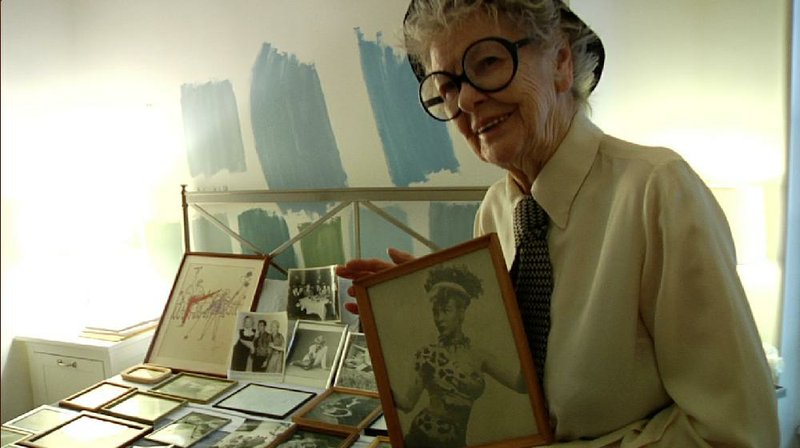Chiemi Karasawa may be just beginning her directing career with the new documentary Elaine Stritch: Shoot Me, but her Internet Movie Database page is impressively long. She was a script supervisor (someone who records how much of a script is shot and who helps prevent continuity errors) on Adaptation, High Fidelity, Where the Wild Things Are and Martin Scorsese’s documentaries Public Speaking and Shine a Light.
She also produced the documentaries Elevate and The Lazarus Effect through her company Isotope Films.
When asked how her previous background prepared her to follow the blunt-spoken 89-year-old Broadway diva Elaine Stritch, who immortalized Stephen Sondheim’s song “I’m Still Here,” Karasawa replies, “I think any amount of work in filmmaking and storytelling is excellent background and training for directing documentaries. In narrative filmmaking, everybody sort of has the recipe for the entree, and in documentary, you’re sort of hunting for what all the ingredients are going to be for the story you’re going to tell.”
“A lot times you’re just a co-pilot watching the director do their thing, and that’s as helpful as anything else.”
Stritch’s career stretches from the 1940s and has continued through 30 Rock, where she played Jack Donaghy’s (Alec Baldwin) domineering mother, to ParaNorman, where she voiced Norman’s not-completely-dead grandmother.
Because of her long career and forceful personality, it’s tempting to think Stritch will always be there, despite some occasionally alarming health issues. “During the year and a half that we were shooting, there were about six times we went to the hospital with her, but Elaine has this remarkable quality, like a phoenix rising from the ash, over and over again. In this unpredictable way we would always think it was curtains, and two days later, she’d be watching 30 Rock and bitching about her pay scale, ” Karasawa says.
“After that happened one or two times, I just drank the Kool-Aid and just believed she was going to live forever. Unfortunately, I kind of feel like that even though it’s not true.
“Elaine is the ideal subject for a documentary because she’s so honest and courageous and shameless, but I do think it took a good deal of time to make her comfortable with me. As our friendship developed, the material I was able to have access to just got better and better because she wanted to expose herself, if you’ll excuse the term.”
While the actress can be domineering, she is also remarkably supportive of peers and fans. “Elaine is 100 percent approachable,” Karasawa says. “She really enjoys having fans. She really enjoys mentoring young actors. There’s nothing more exciting to her than people who are passionate about and excited about theater and performing like she is. She will be having the worst day in history, but she’ll still be unbelievably kind and generous to the five people who stop her on the way home from the doctor’s office.”
Elaine Stritch: Shoot Me also gives audiences outside of New York a chance to see her performances, which have primarily been on stage. One simply can’t rent her performance in Sondheim’s Company.
“The problem with performing arts is that it’s ephemeral, and unless it’s captured and documented and archived somewhere, it’s just lived for the time that it lived,” Karasawa says. “[Why] I’m proud that this film exists [is] because people who are into Elaine can now look her up and go to their libraries or look her up on YouTube and learn more about her themselves.”
MovieStyle, Pages 36 on 04/18/2014
